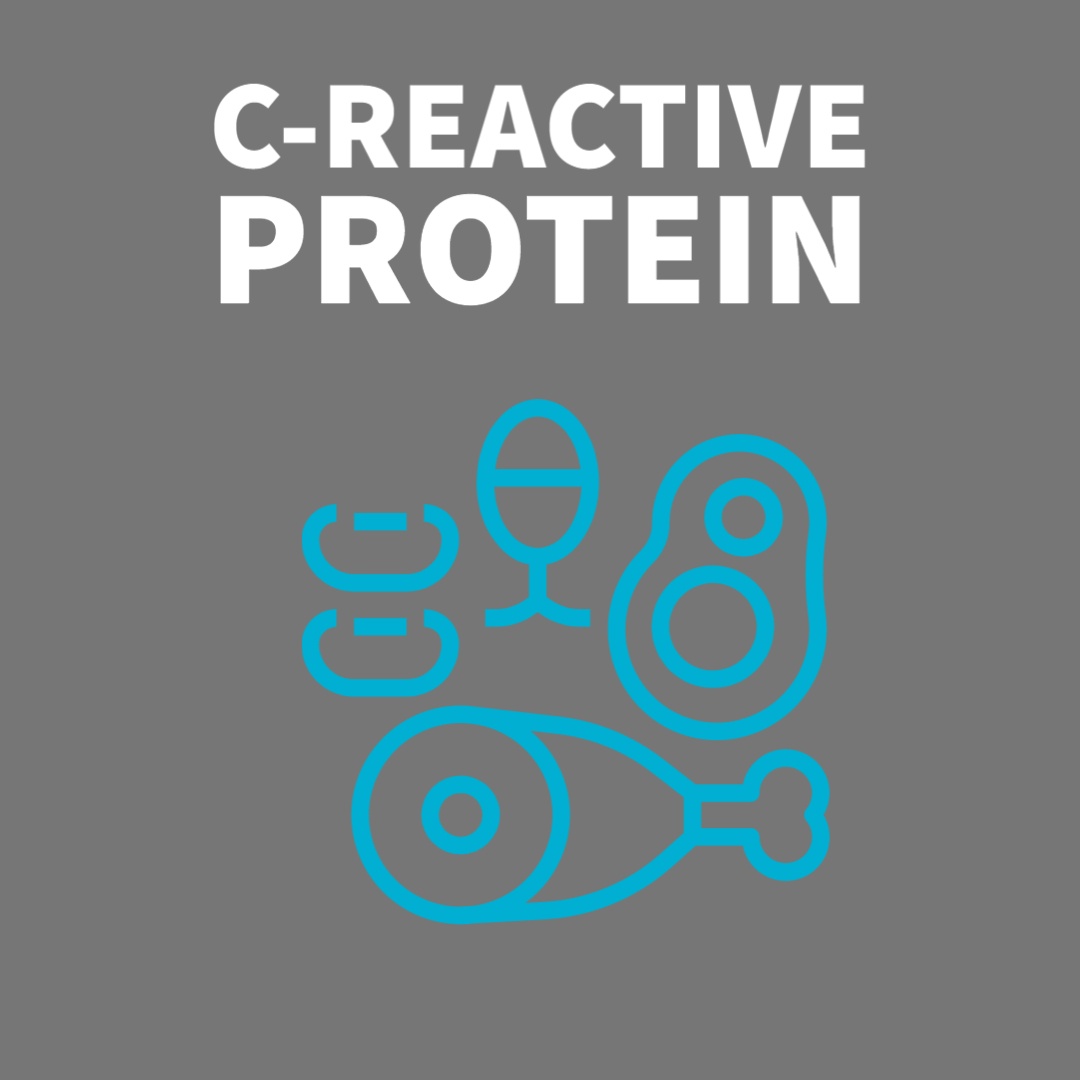C-Reactive Protein
C-Reactive Protein (CRP) is an inflammatory marker often checked in blood test to determine level of inflammation in the body. C-Reactive Protein that can be used to predict heart attack risk. It is produced by the Liver and released in response to acute injury, Bacterial & Viral Infection or other causes of Inflammation that causes increase of CRP. The body releases CRP into the bloodstream when Blood Vessels leading to the Heart are damaged, a common result of Atherosclerosis. C-Reactive Protein level indicates the degree of Inflammation occurring in the lining of the Arteries. C-Reactive Protein is a biomarker of abnormal Blood Clotting (its presence is indicative of destabilized atherosclerotic plaque that can cause abnormal Blood Clotting). C-Reactive Protein is a biomarker of future Heart Attack risk (its presence is indicative of destabilized atherosclerotic plaque that can cause Heart Attacks). People with high levels of C-Reactive Protein are three times more likely to die from a future Heart Attack than people with low levels of C-Reactive Protein. The Brains of Alzheimer’s Disease patients contain higher than normal levels of C-Reactive Protein and also patients with Dementia have higher than normal levels of C-Reactive Protein in there brain.
Toxic Effects of C-Reactive Protein
– Biomarker of Inflammation
– Biomarker of future Hypertension risk
– biomarker of future Heart Attack
– biomarker of Dilated Cardiomyopathy
– Biomarker of future Stroke
– Biomarker of abnormal Blood Clotting
– biomarker of Atherosclerosis
– May be a biomarker of (acute) Pancreatitis
– May be a biomarker of future risk of Cataracts
– May be a biomarker forAge-Related Macular Degeneration (ARMD)
– May be a biomarker for Cancer (Colon and Prostate)
– May be a biomarker of Insulin Resistance
– May be a biomarker of Diabetes Mellitus Type 2
– Biomarker of Crohn’s Disease
– May be a biomarker of Rheumatic Fever
– May be a biomarker of Rheumatoid Arthritis
– May be a biomarker of Fractures
Substances may Lower C-Reactive Protein Levels
– Dietary Fiber
– DHEA
-Arginine
– Selenium
– Magnesium
– Folic Acid
– Vitamin B6
– Vitamin D
– Vitamin C
-Vitamin E
– Curcumin
– Resveratrol
– Eicosapentaenoic Acid (EPA)
– Omega-3 Fatty Acid
– Fish Oil
– Krill Oil
– Flax Seed grained or oil
– Nuts
– Who; Grains
– Probiotic (Lactobacillus)
– Red Yeast Rice
– Quercetin
– Wine
– Chocolate
– Patented Medicines (Aspirin and Ibuprofen)
Substances may Increase C-Reactive Protein Levels
– Immune System Chemicals (Interleukin-1, Interleukin-6 and Tumor Necrosis Factor)
– Conjugated Estrogens
– Trans-Fatty Acids
– More than one cup a day Coffee
– Tabacco
- Insulin Resistance - March 10, 2021
- prostate – Enlarged (BPH) - November 25, 2020
- Probiotics - October 31, 2020


